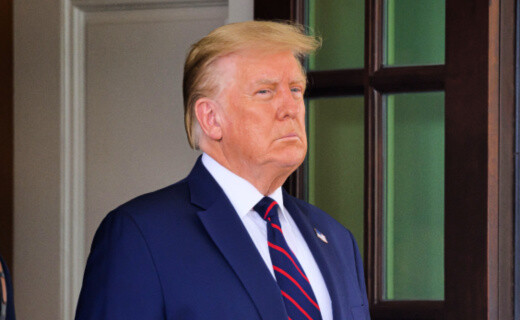Politics
BREAKING: Trump Could Be Indicted As Soon As Tomorrow In J6 Probe

Another potential indictment of former President Donald Trump, as part of the ongoing special counsel’s investigation into the January 6th events, could be announced as early as Tuesday this week, according to CBS News correspondent Scott MacFarlane.
In Monday’s news briefing, MacFarlane shed light on the trajectory of Trump’s numerous legal challenges, with particular focus on the implications of the special counsel’s investigation into the infamous January 6th Capitol Hill riot. Notably, the grand jury handling the case usually meets on Tuesdays and Thursdays, with the presiding magistrate judge typically hearing cases from 1 p.m. Eastern Time.
“Though there is no set date on the calendar, nor a guaranteed indictment, the target letter that Trump acknowledged and we have independently confirmed, points to a federal prosecution that is likely, if not imminent,” reported MacFarlane.
This “target letter,” acknowledged by Trump and confirmed by CBS News, is traditionally viewed as a strong signal of potential prosecution. In legal parlance, such a letter is typically sent to individuals under scrutiny in a criminal investigation, suggesting they are a ‘target’ for indictment.
WATCH:
A potential indictment of former President Trump in the special counsel's Jan. 6 investigation could come as early as Tuesday of this week, CBS News @MacFarlaneNews reports. pic.twitter.com/9oFCmG6DDr
— CBS News (@CBSNews) July 24, 2023
However, MacFarlane also cautioned that while the process may be moving forward, the timing remains uncertain. “This is something to be measured in days and weeks, not months and years,” he said. The former President has faced numerous legal challenges post his presidency. However, a third potential indictment in the January 6th investigation could mark a significant turn.
A letter sent last week to Trump indicated that special counsel Jack Smith planned to charge him with numerous crimes related to the January 6, 2021 riots. This included a section from U.S. Code enacted during the Reconstruction era.
The New York Times revealed a copy of the letter that hinted at three potential criminal charges as the Justice Department mulled over the prosecution of the former president. Two of these charges – conspiracy to defraud the government and obstruction of an official proceeding – were already known, but the latest disclosure suggested a similarity between Trump’s potential charges and those facing the January 6th prisoners, who Smith claimed acted under Trump’s guidance when they trespassed the Capitol building during the certification of President Joe Biden’s electoral win.
The less known statute, U.S. Code Title 18 Section 241, enacted post-Civil War to curtail groups like the Ku Klux Klan from preventing newly freed slaves from voting, was also under consideration. To successfully utilize this law, Smith would have to convincingly argue that Trump took comparable steps to overturn the 2020 elections results in certain states, like Georgia. Notably, former president’s aides, including ex-New York Mayor Rudy Giuliani and attorney John Eastman, had not received similar prosecution warnings.
The Justice Department had previously used the corrupt obstruction of a proceeding charge against hundreds of January 6th rioters. Despite its original intent as part of the Sarbanes-Oxley Act to curb corporate misconduct, a federal appeals court in April upheld its use against the Capitol attackers.
Many of the January 6th prisoners expressed regret for their guilty pleas and hoped for overturned convictions should Trump regain the presidency. Given an indictment related to January 6th, Trump would be required to return to D.C. for an arraignment, albeit likely not held without bail like many of the January 6th prisoners.

